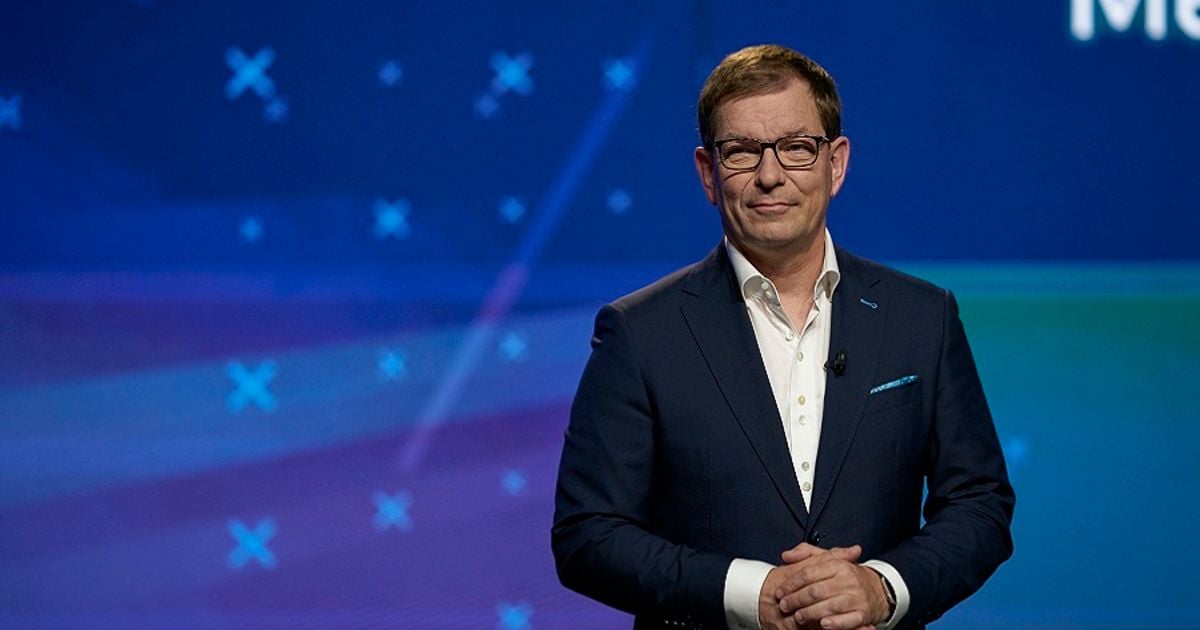
Audi will decide this year whether it needs to build a production facility in the United States to take full advantage of the electric vehicle tax subsidies contained in the Inflation Reduction Act, the premium brand’s CEO said Thursday.
Speaking from Germany during Audi’s annual press conference with global media, CEO Markus Duesmann said the brand is actively studying whether to expand its production footprint into the U.S. and will make a decision soon.
“The United States is an extremely important market for us,” Duesmann told journalists through an interpreter on an online broadcast. “We have considered to expand capacities, but the decision has not been taken yet.”
As for the Inflation Reduction Act, Duesmann said “you cannot ignore it as a company, and it has to be a wake-up call. And the European Union also have to find an answer to this, but it must be a nonprotectionist answer. We are really closely observing [its impact] in the market; it seems to be a very positive development, so the decisions will be [made] this year.”
Audi plans to invest about $45 billion over the next several years around the globe as it continues to transition to an exclusively EV lineup by 2033. Included in that investment will be 20 new or freshened models, of which 10 are EVs, Duesmann said.
The brand will also recast the nomenclature of its products, using even numbers to represent EVs and odd numbers to identify traditional combustion and plug-in hybrid vehicles.
The new naming structure began with the introduction of the Q8 e-tron full-size EV crossover, and followed with the Q4 e-tron and upcoming Q6 e-tron crossovers. Vehicles that currently don’t fit neatly into that nomenclature — such as the current A4 and A6 ICE-powered sedans — will maintain their current names until they are succeeded by EVs in their segment, Audi executives later clarified.
In another announcement, Audi CFO Jürgen Rittersberger said the brand was studying whether to combine Audi dealerships with its premium motorcycle brand Ducati in regions around the globe, including the United States, to “fill holes” in its distribution system. Audi of America President Daniel Weissland clarified later that any combination of the two brands would be on a spot basis where opportunities exist and not systemwide.
In later comments, Weissland and Hildegard Wortmann, head of sales for Audi AG, noted the brand’s 2022 performance, with sales up significantly in the second half of the year as production woes eased slightly. Audi’s U.S. sales were down 28 percent in the first six months of 2022 as it dealt with the chip shortage and fallout from Russia’s invasion of Ukraine, but finished up 20 percent in the third quarter and 63 percent in the fourth quarter, off just 4.7 percent at 186,875.
They said the trend continued into 2023, with Audi of America posting its best February sales on record. However, the brand reports its sales only quarterly, so the figures weren’t available.
Weissland added that Audi posted record sales last year of aftermarket products, which include items such as accessories and warranty products.
On plans to increase U.S sales and market share, Weissland said “we are focused on an ambitious but responsible growth” in the highly competitive premium segment. “And that’s important, because it needs to be sustainable for our dealer partners and for us. We are not just, for the sake of chasing numbers, punching cars into the market.”
Wortmann said the brand has rebuilt its relationship with its U.S. dealer network that deteriorated after Volkswagen Group’s diesel emissions scandal. “We’ve moved really to build back the trust, and we are really back into good, constructive discussions with our dealer councils and with our dealer partners,” she said. “We need to be reliable partners, and profitable partners for them [because] we have a strong ambition to grow.”
Asked about the drop in leasing and its worrying long-term impact, Weissland said Audi “will make sure we stay competitive” with leasing offers, but that the market factors that have pushed up costs continue for all automakers. “The lease channel is a very expensive channel.”